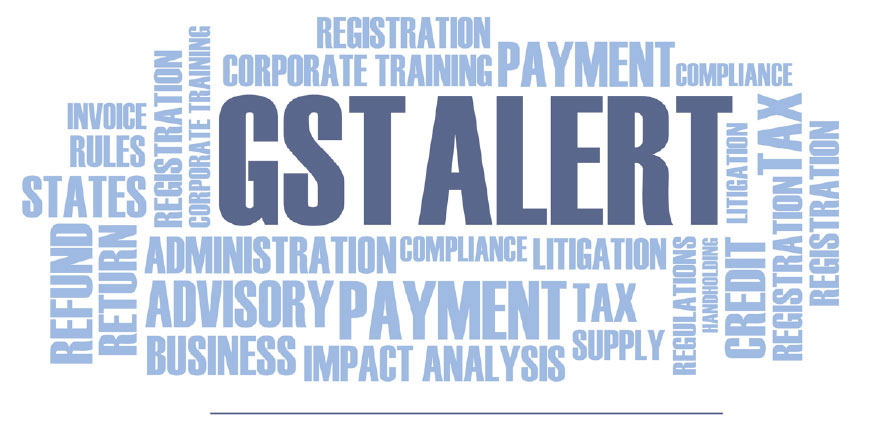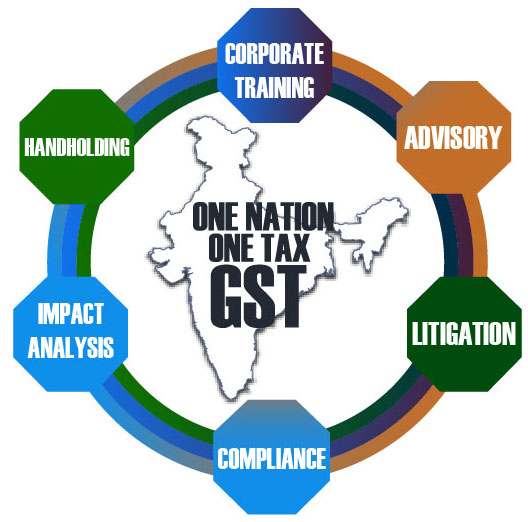Dated 28th December, 2019

Recovery proceedings under Section 79 of CGST Act, 2017 is justified without determination of tax under Section 73 of the said Act in cases wherein such tax has been determined on self assessment basis under GSTR 1 filed by the Appellant.–Madhya Pradesh High Court dismissed writ filed by the Appellant. 1
Facts of the case
The Company is owner of a commercial building and is having various tenants in respect of the building.TheCompany is registered for carrying on business of renting immovable property and alsoprovides allied services and is a taxable person. An order was passed earlier in respect of recovery of service tax dues by Deputy Commissioner, CGST directing the tenants to deposit the rent with the State Exchequer, however, after recovery of entire duesalong with penalty, the notice was withdrawn. Department has again issued a notice to the tenants of theCompany under Section 79(1)(c) of CGST Act 2017 initiating recovery against them on accountof tax, cess, interest etc. payable under the provisions of Section 79 of CGST Act 2017. The Company has submitted a reply and their grievance is that the notice/order is illegal and has been issued contrary to the statutoryprovisions of the CGST Act 2019.
Contention of the Company
It is the contention of the Appellant that in absence of determination of tax under Section 73 of the CGST Act 2019, no recovery can be made against thepetitioner, as no notice of demand was ever issued to the Company.The petitioner has also stated that the action of respondents is contrary to the statutory provision as contained under Section 79 of the CGST Actof 2017, hence the impugned order deserves to be quashed.
Contention of Department
Department contends that the petitioner has issued invoices to itsclients and filed GSTR-1 return and self assessed GST liability by filing statutory GSTR-1return under Section 37 of the CGST Act of 2017. This does not mean that the petitioner is not required to file GSTR-3B and no GST is to be paid on self assessed transaction value shown in GSTR-1. Since the petitioner hasfailed to file GSTR-3B and failed to deposit the self assessed legitimate tax to the Government accountthey are served notice under section 79 of the CGST Act 2017. Absence of tax determination under section 73 of CGST Act, 2017 is an erroneous contention of the petitioner as they self assessed the same.
Holding of the Maharashtra Hon’ble Court
The undisputed facts reveal that the petitioner is aggrieved by the demand order/notice issued by theDeputy Commissioner, CGST & Central Excise.The petitioner has filed GSTR-1 return under Section 37 of the CGST Act of 2017, however, the petitionerhas not filed GSTR-3B returns.. It is noteworthy to mention that GSTR-1 is declaration of tax liability and GSTR-3B isevidence of actual payment. The petitioner has stated that GSTR-1 cannot be termed or classified as self assessed liability, it is only adeclaration made for limited purpose. The said issued stands concluded on account of notification wherein an amendment has been made in Rule 61 of the GST Rules with retrospective effect and filing of GSTR-3B has been madecompulsory.
The aforesaid statutory provision of law makes it very clear that it was mandatory for the petitioner to file GSTR-3B return.Statutory provision as contained under Section 79 of the CGST Act of 2017 procedure adopted by the department has rightly been taken. Thepetitioner's contention is certainly erroneous, as there is no dispute about the quantum of tax liability. Revenue is simply pressing upon for actual payment as being declared by the petitioner itself under GSTR-1.The petitioner has to pay the tax liability assessed by himself.
In the present case, there is no necessity to determine the taxable person, as the liability has been self assessed by the petitioner itself. Sofar as the determination of taxable person in the present case is concerned, the case of revenue rests on the GSTR declaration made by thepetitioner itself, and therefore, there was no need of determination of taxable person.
The petitionercannot escape his liability of payment of GST under CGST Act of 2017, especially when he has filed GSTR-1 and has quantified the tax payable byhim while submitting the GSTR-1.Thus the present writ petition stands dismissed.
1 Kabeer Reality Pvt Ltd Vs Union of India and othersbefore Madhya Pradesh High Court
2No.49/2019 dated 09.10.2019t

BT Associates is a premier indirect tax consultant in kolkata, delivering high quality services to client in the area of indirect taxation.GST idea is a unit of BT Associates formed to share knowledge on stakeholders. We cover entire gamut from technical papers to recent development including IT under GST


-
Founder Member
- Bhaskar Thakkar
- Chief Executive officer
- BT Associates, India
- thakkar@btassociate.com
BT Associates is a premier indirect tax consultant in kolkata, delivering high quality services to client in the area of indirect taxation.GST idea is a unit of BT Associates formed to share knowledge on stakeholders. We cover entire gamut from technical papers to recent development including IT under GST






